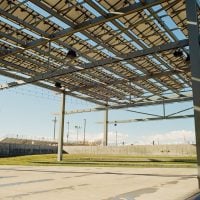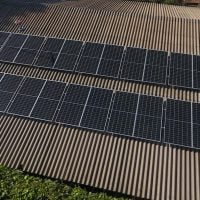Deadline: 8-Dec-22
European Commission is seeking applications for the Thematic Program for the Organizations of Civil Society in Mexico.
Priorities Areas
This call for Mexico of the Thematic Program Civil Society Organizations 2021-2027 reaffirms the commitment of the European Union to support CSOs in order to enhance their participation as actors of change in governance and development. This overall commitment is based on three priorities:
- Redouble efforts to promote a CSO-friendly environment in partner countries;
- Promote a significant and structured participation of CSOs in the definition, monitoring of implementation and evaluation of public policies of partner countries, and in international processes;
- Increase the capacity of local CSOs to more effectively play their role as independent development actors.
The call also responds to the priorities promoted in the Multiannual Action Plan of the European Union for Mexico, in particular in the sectors related to the green transition, social cohesion and the reduction of inequalities with specific attention to women and young people in vulnerable situations.
Objectives
- The overall objective of this call for proposals is to strengthen CSOs as independent actors of good governance and development in their own right.
- The specific objective of this call for proposals is to strengthen the capacity of civil society to participate and influence in a meaningful and structured way the definition, monitoring and implementation of public policies through actions that contribute to the promotion and development of decent work (lot 1) and compliance with Mexico’s National Determined Contributions (NDCs) through nature-based climate change adaptation measures
- LOT 1
- More specifically, proposals submitted under Lot 1 of this call must contribute to the following priorities:
- Strengthen CSOs and their capacities in their role as promoters and monitors of public policies that work for the formalization of employment and for the full exercise of social rights (social protection, decent employment ).
- Accompany the most vulnerable employees and workers to formalize and, specifically, to register in the Mexican social security system (IMSS) in order to exercise their rights to social protection.
- Recognize/certify skills and support the professionalization, in particular (but not exclusively), of housework and care.
- Activate alliances and/or promote/consolidate actions with key actors for the formalization of employment -representative associations of the final beneficiaries, representative associations of the business sector, associations for professional training including dual, worker associations, youth associations, associations of women, federal, state and municipal authorities, legislative powers, agencies and entities specialized in the sector, etc.
- More specifically, proposals submitted under Lot 1 of this call must contribute to the following priorities:
- Final beneficiaries for Lot 1:
- The final beneficiaries are the most vulnerable women and young workers in the informal economy: domestic workers, farm workers, in risky or dangerous sectors (transport, construction, sex, etc.), workers migrants etc.
- LOT 2
- Proposals submitted under Lot 2 of this call must contribute to the following priorities:
- Contribute to the definition, implementation and monitoring of public policies for adaptation to climate change, through measures based on coastal and maritime ecosystems
- Accompany specific actions for the restoration and protection of mangrove ecosystems, through the ecological restoration method, in the coastal areas of Mexico, particularly in high-risk areas.
- Strengthen the capacities of local communities for sustainable management of mangrove ecosystems and the development of ecological alternatives for the exploitation of coastal areas.
- Develop, promote and consolidate alliances with governments (at the federal, state and municipal levels), associations, private sector actors and local communities or other interested actors to implement projects to establish blue carbon capture zones
- Final beneficiaries for Lot 2: population (particularly women, men and youth in situations of high economic vulnerability) of coastal communities, particularly in areas highly vulnerable to the impact of climate change or with a high rate of disaster risk.
- Proposals submitted under Lot 2 of this call must contribute to the following priorities:
Funding Information
- The total indicative amount allocated to this call for proposals is EUR 3,800,000. The Contracting Authority reserves the right not to award all available funds.
- Indicative distribution of funds per lot:
- Lot 1 : €2,000,000
- Lot 2 : EUR 1,800,000
- The grants requested within this call for proposals will be between the following minimum and maximum amounts:
- Minimum amount : 600,000 EUR
- Maximum amount : 1,000,000 EUR
- The initial planned duration of an action may not be less than 36 months nor more than 42 months.
Eligibility Criteria
- Main applicant
- To be eligible for a grant, the lead applicant must:
- Be a legal person and
- Be non -profit;
- Be a civil society organization that operates independently and responsibly ;
- To be eligible for a grant, the lead applicant must:
- be established in a Member State of the European Union or other eligible countries in accordance with the provisions of the IVCDCI-GE (REGULATION (EU) 2021/947 OF THE EUROPEAN PARLIAMENT AND OF THE COUNCIL of June 9, 2021, which establishes the Neighbourhood, Development Cooperation and International Cooperation Instrument – Global Europe)
- Be directly responsible, with their co-applicants and affiliated entities, for the preparation and management of the action and not simply act as intermediaries.
Co-applicants
- For each lot, each proposal must have a lead applicant and at least one co-applicant.
- At least one of them must be a CSO established in Mexico, in particular in the state(s) in which most of the action is implemented. This implies that, if the action is implemented in 2 or more states of the Mexican Federation, the local CSO concerned must have representation at the state level in the states concerned, or else the proposal must incorporate several co-applicants so that said representativeness is insured by the consortium as a whole.
- The co-applicants will participate in the design and execution of the action, and the costs they incur will be eligible in the same way as those incurred by the main applicant.
- Co -applicants must meet the eligibility criteria applicable to the lead applicant itself
- In addition to the categories mentioned, local authorities (municipalities and local governments) and associations of local authorities will also be eligible.
- Co-applicants must sign the mandate grant contract is awarded, the co-applicants (if any) will become beneficiaries of the action (together with the coordinator).
- In addition, please note that contracts may not be awarded or signed with those applicants included in the lists of EU restrictive measures
Affiliated Entities
- The lead applicant and its co-applicants may act with affiliated entities.
- Only the following entities may be considered entities affiliated with the lead applicant or co-applicants:
- Only entities that have a structural link with the applicants (ie the main applicant or a co-applicant), especially if the link is legal or capital.
- This structural link mainly covers two aspects:
- Control, as defined in Directive 2013/34/EU on the annual financial statements, the consolidated financial statements and other related reports of certain types of companies.
- Thus , the entities affiliated with an applicant can be:
- Entities controlled directly or indirectly by the applicant (subsidiary companies or first-tier subsidiaries). They can also be entities controlled by an entity controlled by the applicant (second level subsidiaries), and the same applies to the following levels of control.
- Entities that directly or indirectly control the applicant (parent companies). Likewise, they may be entities that control an entity that in turn controls the applicant.
- Entities under the same direct or indirect control as the applicant (associated companies).
- Membership , i.e. the applicant is legally defined as, for example, a network, federation or association in which the proposed affiliated entities also participate, or the applicant participates in the same entity (for example, network, federation or association) that the proposed affiliated entities.
- As a general rule, the structural link will not be limited to the action nor will it be established for the sole purpose of its execution. This means that the link exists regardless of the award of the subsidy; it must have existed before the call for proposals and must remain valid after the completion of the action.
- Exceptionally, an entity may be considered to be affiliated with an applicant, even though the structural link has been created specifically for the sole purpose of carrying out the action, in the case of ” sole applicants ” or “sole beneficiaries “A single applicant or a single recipient is a legal entity made up of several entities (a group of entities) that together meet the criteria for the award of the grant. For example, an association is made up of its members.
Ineligible
The following entities are not considered affiliated with an applicant:
- Entities that have signed a contract or subcontract (for public procurement) with an applicant or that act as concessionaires or delegates of public services for an applicant,
- Entities that receive financial assistance from the applicant,
- Entities that regularly cooperate with the applicant on the basis of a memorandum of understanding or that share some assets,
- Entities that have signed a consortium agreement under the grant contract (unless this consortium agreement involves the creation of a “single applicant
For more information, visit https://bit.ly/3V26Aa9









































